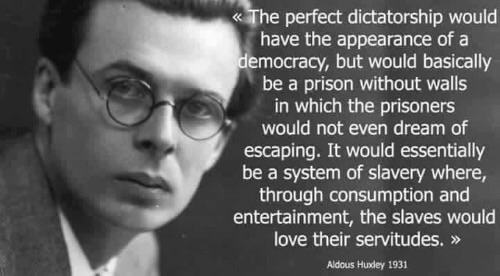As a human race we all share numerous commonalities, including in our various wisdom traditions. Aldous Huxley was an English writer who penned a work called The Perennial Philosophy in 1945. In it he presented this thesis that there is a universal and timeless spiritual truth which all humanity shares. Time and culture may separate us from each other, but underlying this there is a common thread among all of the human race for all time.

And this makes sense, considering the fact that humanity has not changed much and also that we are all essentially the same when it comes to core fundamentals. We all experience the six changes throughout life: we are born, we grow, we maintain, we reproduce, we dwindle and then we die. That is the story for every one of us. Therefore in essence we are one human race, regardless of time, place and circumstance.
Religions may change or differ with time and culture. Rituals, totems and taboos may vary on the surface, but beyond that there is a fundamental unity that links up all cultures and all people over all of time. Huxley was an Englishman in a conservative period of history, yet he saw beyond his social conditioning and went on to study the various world religions, including Christianity, Islam and the Semitic traditions, as well as Buddhism and Hinduism, or what he knew of them or could access about them in his time. And he concluded that they all point to a transcendent reality beyond this material world. Huxley was, admittedly, not a fully fledged practitioner of each spiritual practice, yet he could at least intellectually perceive a sense of unity among the major religions of his day.
Also, he may not have studied the lesser known or more tribal practices which may be found in – for example – the Amazon forests, the Ancient Mexican Mayan or Aztec cultures or any number of other such isolated over differing periods in history. So his thesis is not based on a comprehensive investigation. Still, it does include the vast majority of people throughout history and among the most well known and practised religions or spiritual teachings and philosophies.
The Perennial philosophy alludes to a common belief in a divinity or godhead, or something you could refer to as an “absolute truth”. Such absolutes may also include such things as the laws of nature, like physics or mathematics, yet even those laws can change under differing circumstances potentially. That is, of course, a matter for debate and falls outside the parameter of philosophy or metaphysics, as found in the spiritual traditions generally accepted as included in Huxley’s perennial philosophy. Math and physics are pure sciences, and not philosophies as such, I presume.
Rather, Huxley’s perennial philosophy included concepts like the unity of being, a fundamental unity underlying all existence. Science would appear to also describe this concept, with math and physics fitting in here, although concepts like gravity are only limited to this planet. The laws of gravity may be different on other planets, for all we know. Also the concept of time may be localized to just our planet and may be quite different on other planets. So when considering a universal philosophy, we may have to look for proof or personal experience of those other planets first, before writing our thesis of universality.
Nevertheless, on this planet where we find ourselves, which happens to be the only place with life in the universe so far, there seems to be an interconnectedness among all life, or at least among the cultural traditions of our civilizations throughout history, as we know it. And history cannot always be relied upon to be factual, when the victors are known to rewrite it in their favor whenever they usurp the losers who went before them. So our knowledge of our history is sketchy at this point. Nevertheless, Huxley’s concept of a unified theory seems valid, since all humans follow the same journey from birth to death, regardless of time, place or culture.

Another common theme is the teaching on transcendence of the ego, which is found in the major religions, particularly Hinduism and Buddhism. Semitic traditions however, from what I have seen, seem to like clinging to the material body and ego. That’s why they bury the corpse. They believe that the person will enter the afterlife in that same form since that form is your real form. This, of course, is totally opposed to the transcendent philosophy of the east, where the body is cremated at death because they believe the opposite, namely that the real self has nothing to do with the current material body or ego and is something that existed before you took birth in this body and will continue beyond the demise of this temporary body. So I see some crucial fundamental differences in these so-called perennial philosophies, making them almost diametrically opposed to each other.
One threat which is, however, common to most religions is the understanding that direct personal experience is one way to access the truth, specifically the absolute truth, or god. By their individual spiritual practices and techniques, followers of all the world’s religions believe that one can gain greater knowledge of god and one’s transcendent nature in relation to the divine, in whatever shape or form it is said to manifest in that culture. This inner knowledge – especially if it truly is transcendent – should theoretically be the same for all of us, since we are all part of the same human race on the base level, and thus might share a common perception of the transcendent when you peel away the minor external differences between one person and another, regardless of time or place.
Finally, one could also say that a real common thread among all of humanity’s philosophies and cultures is that of ethical living or right behavior. The only difference is that what was right for one may be quite different from what is right for another, especially over time and across cultural divides. We may all believe in the sanctity of life, and yet the Mayans may have actually engaged in human sacrifice. So too did the Jews for a while in the early days. Who was the man who had to sacrifice his first born child to his god in the old testament? Fortunately a substitute lamb was provided and his hand was stayed. Yet the concept echoed through the original Semitic tradition, that of human sacrifice, from the little I know on the subject.
So your ethical behavior under the eyes of your god might be quite different to that of someone elses, even if they both presume to be adhering to the will of the divine. Even in the Vedic culture of India, which you might think is quite homogenous or unified, still there is such diversity that if, for example you prayed to Krishna, you might offer in sacrifice a leaf, flower fruit of water. But if you worshiped Kali the dark goddess on the dark moon night, you might be prescribed, by a different section of the same Veda, to offer blood and alcohol, or even a human sacrifice, according to the Vedas themselves. These Veda are said to be divided into three sections for the three types of people – those in goodness (sattva), those in passion (rajas) and those in ignorance (tamas). So even there the philosophy is divergent among differing people, though still under one umbrella of Vedanta and so-called Hinduism.
Therefore, the concept of a single unifying theory of divinity, consciousness and transcendence with all the morals and ethics that accompany it, may differ considerably, from what my own studies tell me. I doubt Huxley studied the Vedas or all the traditions in detail before concluding his theory of a perennial philosophy. That said, there are some general common themes which one could bundle up into a perennial philosophy that alludes to a unifying thread regarding consciousness and the absolute truth, though only if you trim off all the details and contradictions in application and perspective. And as we are told, the devil is in the detail.
I haven’t read Huxley’s book called The Perennial Philosophy in full myself yet, so I can’t say what Huxley was thinking or how deeply his analysis of the various traditions went, but from my personal study of the world’s religions and teachings, I would say that in some parts there is a common thread but in others there are diametrically opposing perspectives and applications based on those perceptions. So the perennial human race may have a lot in common throughout its time on this planet, and its philosophy of transcendence may be part of that. However, the details of that absolute truth and the approach to transcendence varies considerably from one culture to another and from one historical time frame to another.
Unity of consciousness is a noble concept, and some traditions hint at a common underlying unity. The unified field theory is interesting on paper and in absolute terms, particularly from the other side of the thin veil of consciousness, or from the perspective of transcendence or god’s living room window. But here on the earth the one human race has many divergent applications and perspectives on what that transcendence is or how to apply themselves to it.
Images: www.naturalblaze.com; www.reddit.com
Posted using Proof of Brain
